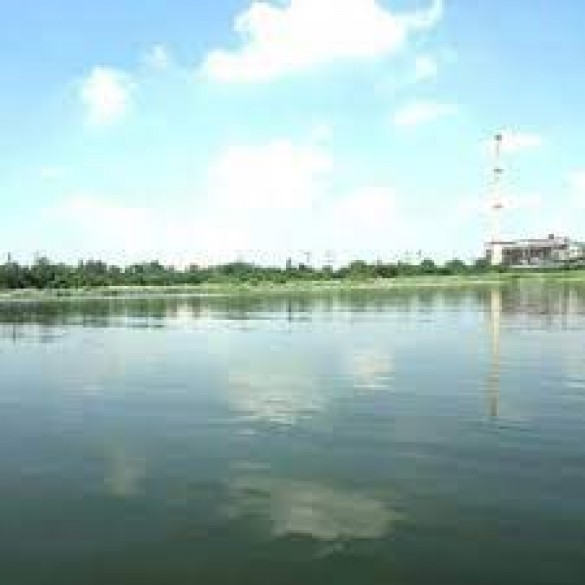
The rivers Ganga and Yamuna, two of India's most sacred and revered water bodies, are currently facing severe conservation challenges. Over the years, human activities, pollution, and mismanagement have taken a toll on these rivers, jeopardizing their ecological health and the well-being of the communities that depend on them. In this article, we will delve into the issues surrounding the Ganga and Yamuna rivers, explore their environmental significance, and discuss potential solutions for effective river conservation.
1. The Importance of the Ganga and Yamuna Rivers: The Ganga and Yamuna rivers hold immense cultural, religious, and economic significance in India. They are considered holy by millions of people and are an integral part of their spiritual practices. Additionally, these rivers support a diverse range of ecosystems, providing habitats for numerous plant and animal species.
2. Pollution Threats to the Ganga and Yamuna: The Ganga and Yamuna rivers are facing significant pollution threats, primarily due to human activities. The discharge of industrial and domestic waste, along with agricultural runoff, has severely impacted the water quality of these rivers.
3. Industrial and Domestic Waste Discharge: Industries located along the banks of the Ganga and Yamuna often release untreated or inadequately treated wastewater directly into the rivers. This practice introduces a variety of pollutants, such as heavy metals, organic compounds, and toxic chemicals, leading to the degradation of water quality.
4. Agricultural Runoff and Chemical Contamination: The excessive use of fertilizers, pesticides, and herbicides in agriculture contributes to chemical contamination in rivers. Rainfall and irrigation wash away these chemicals from farmlands, resulting in high nutrient levels and the growth of harmful algal blooms, further degrading the aquatic ecosystem.
5. Deteriorating Water Quality and Impact on Aquatic Life: The deteriorating water quality in the Ganga and Yamuna has led to a decline in aquatic biodiversity. Fish populations have dwindled, and sensitive species struggle to survive in the polluted waters. This imbalance disrupts the entire food chain and the stability of ecosystems.
6. The Role of Government and Environmental Organizations: The Indian government, along with various environmental organizations, recognizes the urgency of river conservation. They have taken steps to address the issues faced by the Ganga and Yamuna rivers, aiming to restore their ecological health and safeguard the well-being of local communities.
7. Initiatives and Measures for River Conservation: To tackle the pollution and degradation of the Ganga and Yamuna, several initiatives and measures have been implemented:
7.1 Construction of Wastewater Treatment Plants: The construction of wastewater treatment plants along the riverbanks is a crucial step in preventing untreated sewage from entering the rivers. These plants treat the wastewater and remove pollutants before it is discharged, significantly improving water quality.
7.2 Strengthening Pollution Monitoring and Enforcement: Effective monitoring and enforcement mechanisms are essential to curb industrial pollution and ensure compliance with environmental regulations. Regular inspections, strict penalties for violators, and the use of advanced pollution monitoring technologies can help control pollution levels.
7.3 Promoting Sustainable Agriculture Practices: Encouraging farmers to adopt sustainable agriculture practices can minimize chemical contamination from agricultural runoff. Implementing organic farming methods, reducing chemical inputs, and promoting the use of natural alternatives can mitigate the negative impact of agriculture on rivers.
7.4 Raising Awareness and Community Engagement: Creating awareness among local communities about the importance of river conservation is vital for the long-term sustainability of the Ganga and Yamuna rivers. Engaging with communities through educational programs, workshops, and grassroots initiatives can foster a sense of responsibility and ownership.
7.5 Legal Interventions and the Right to a Clean Environment: Legal interventions, such as the recognition of the right to a clean environment, play a crucial role in river conservation. Courts can issue directives, enforce stricter regulations, and hold polluters accountable, thereby acting as powerful catalysts for change.
8. Success Stories: Lessons from Other River Conservation Projects: Several successful river conservation projects around the world offer valuable lessons for the restoration of the Ganga and Yamuna rivers. Learning from these experiences can help identify effective strategies and approaches to tackle the challenges faced by these sacred rivers.
9. The Need for International Cooperation: The conservation of the Ganga and Yamuna rivers is not limited to national boundaries. It requires international cooperation, knowledge-sharing, and collaborative efforts. Engaging with neighboring countries, leveraging expertise from global conservation organizations, and participating in international forums are essential for a comprehensive and sustainable conservation approach.
Conclusion: The conservation of the Ganga and Yamuna rivers is an urgent priority. To ensure the long-term well-being of these iconic water bodies, a multi-faceted approach involving government action, community participation, technological advancements, and legal interventions is necessary. By addressing pollution sources, promoting sustainable practices, and fostering a sense of stewardship among the public, we can protect and restore these rivers for future generations.
Rupee Charges Ahead: Indian Currency Surges 6 Ps USDollar, Reflecting Investor Confidence
23 Airports Set for Major Upgrades to Boost Traffic and Elevate Travel Experience
Sensex and Nifty Soar to All-Time Highs, Fueling Investor Confidence in India's Economic Recovery